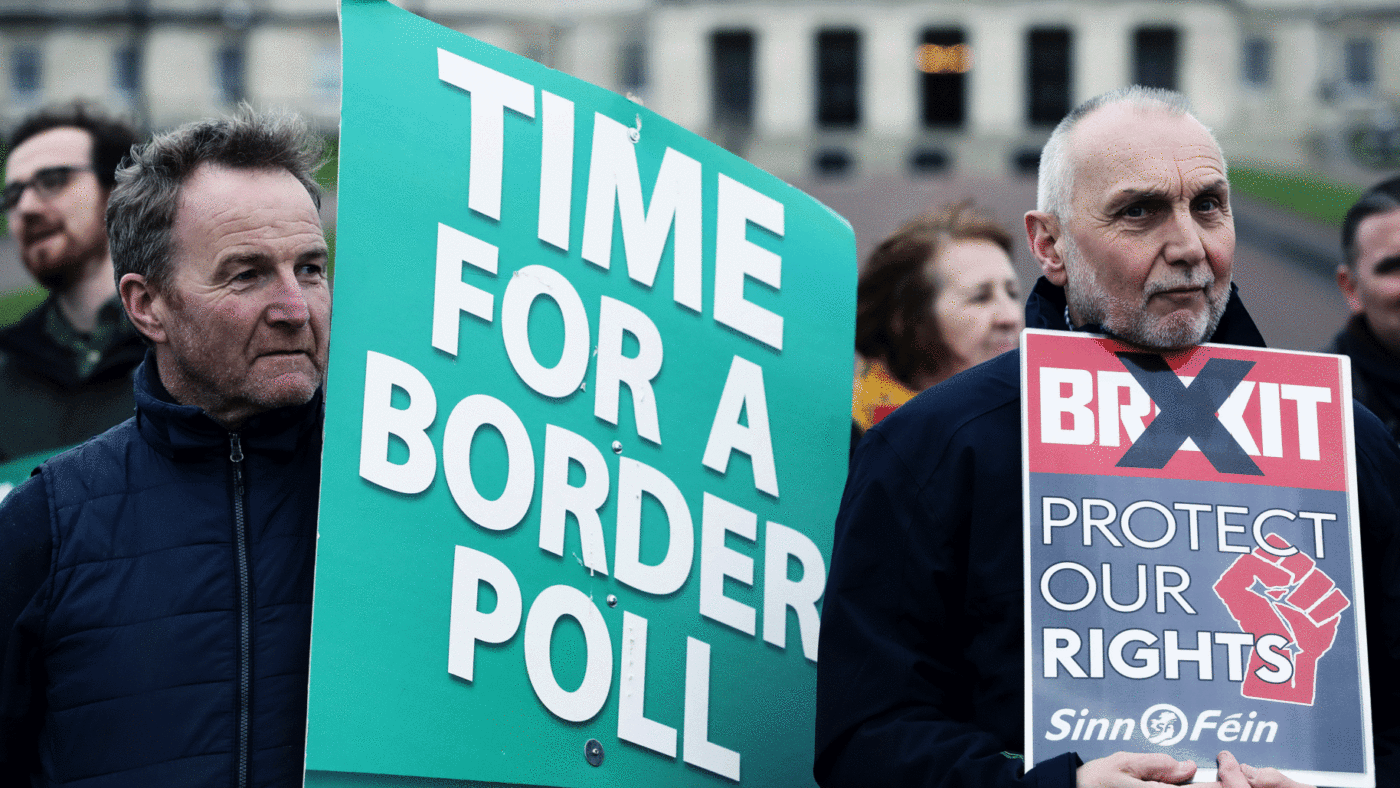Now that the battle for Brexit has been won, the battle for saving the union is in full swing. The weapon of choice is the opinion poll and a particularly striking example was given star billing in the most recent Sunday Times.
It showed 49% of Scots in support of independence, with 44% against and 7% saying they do not know. Now, this does not necessarily mean that independence is likely, and Boris Johnson has said that no new referendum will take place in this generation. Even if the SNP attempt their own referendum, as some sources suggest they might, a boycott by pro-union Scots would render the result meaningless.
Even if an agreed poll were to take place, the rules of engagement are likely to make an independence majority less likely. If the electorate were to include all Scottish-born UK citizens and exclude non-UK citizens, the result would be less certain. Similarly, rules that ensured no change in Scotland’s position without the support of a majority of the Scottish electorate would help to secure a ‘No’ vote. Even without these procedural constraints, Scots may soften their opposition to remaining in a post-Brexit Britain if economic conditions do not deteriorate in ways that the SNP has predicted. Nothing is guaranteed and, as John Lloyd wrote earlier this week, there is all for unionists to play for.
In the case of Northern Ireland, the poll misleads readers in suggesting that support for Irish unity is, at 48%, not far off a majority (excluding Don’t Knows).
It is certainly true that there has been an upsurge of talk of Irish unity since the Brexit referendum. Virtually all of Ulster’s Catholic minority voted against Brexit and enough, mainly middle-class, Protestants and others voted the same way, giving Remain a 56% share in Northern Ireland.
Sinn Fein immediately suggested that the best way for Ulster’s Remainers to stay within the EU was for them to support a united Ireland. That gambit backfired when Protestant Remainers appeared to take fright and the DUP received their highest ever vote in the 2017 general election. And even with a set-back in the 2019 general election, Arlene Foster’s party still received their second-highest ever votes total.
Northern Ireland’s nationalists have nevertheless upped the volume of calls for a border poll, which the Secretary of State is legally bound to call if the evidence suggests a majority for Irish unity. These pleas are not what they seem, however. The clamour is not for a poll now, since nationalists know that they would lose. Instead, the Sinn Fein target is for a poll within ten years, a target which tends to be rolled forward as it is approached.
So how strong is support for a united Ireland?
The evidence from polls in Northern Ireland is uncertain and contradictory. The nearest thing to an official poll is the annual Northern Ireland Life and Times Survey. This equivalent of the British Social Attitudes Survey is run from Queens University and funded by the UK’s Economic and Social Research Council. Based on lengthy face-to-face interviews, the survey regularly asks a question on constitutional preferences.
The consistent response is that under a quarter of respondents favour Irish unity. Moreover, very few want it immediately. Even among Catholics, support for unity is only around 50%. The proportion of pro-unity voters had been slowly declining before the 2016 Brexit referendum and reached a low of 14% by 2015. Since the 2016 referendum the average has been 20%, (or 23% excluding don’t knows). Other polls report similar large majorities for remaining in the UK. Polls by the University of Liverpool report 28% support for a united Ireland, and Ipsos Mori just 21%.
Two other sets of polls give very different figures. Surveys from commercial pollster LucidTalk have consistently show support for Irish unity running at 40-45%. These are based on a demographically balanced voluntary panel of around 13,000 people, from which a balanced sample are invited to participate online. Samples of around 2,000 people are selected by a data-weighting exercise from among the 13,000 or so respondents for individual polls. A similar figure comes from polls by Lord Ashcroft. The Ashcroft organisation has refused to say who conducted its polls in Northern Ireland, but LucidTalk say it was not them.
Clearly, both of these findings cannot be correct. Support for a united Ireland cannot be both under a quarter and almost a half. The reason for the discrepancy appears to reflect the extent to which the polls fail to include those less likely to vote in general elections. LucidTalk’s voluntary panel appears to focus on the more politically committed, in a panel that can be politically manipulated. This is important because the constitutional importance of a border referendum means that it is likely to see a much higher turnout than at general elections.
If we discount the LucidTalk and Ashcroft polls as unreliable guides to an actual border poll, the conclusion is that support for Irish unity remains relatively low. If so, Unionists would likely win a border poll by as much as three to one. No wonder that Sinn Fein and other nationalists are playing for time. They want to keep the possibility of a border poll in front of voters – but they won’t be risking an actual poll anytime soon.
Click here to subscribe to our daily briefing – the best pieces from CapX and across the web.
CapX depends on the generosity of its readers. If you value what we do, please consider making a donation.


